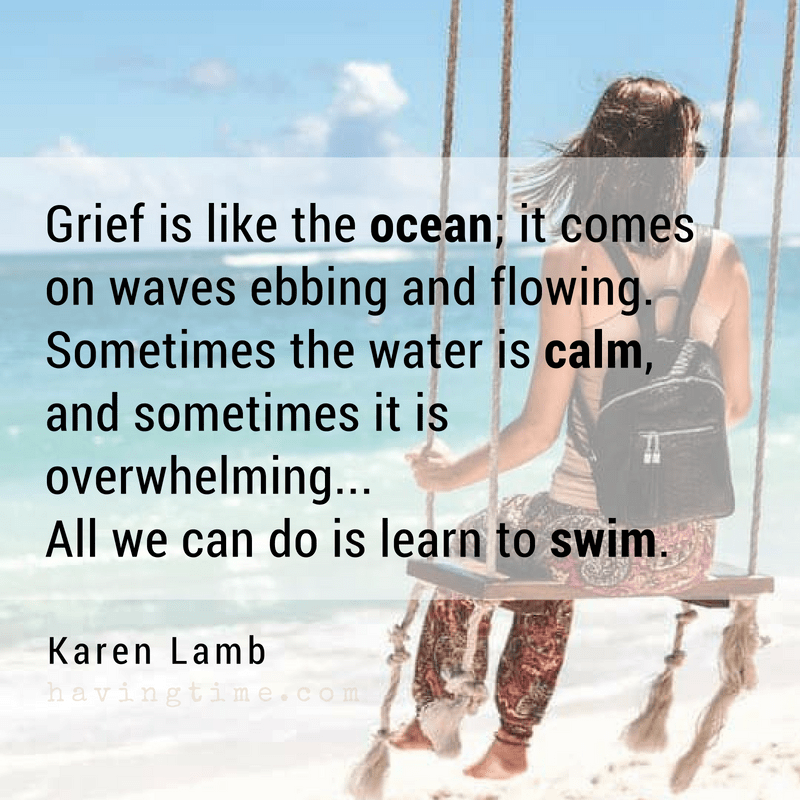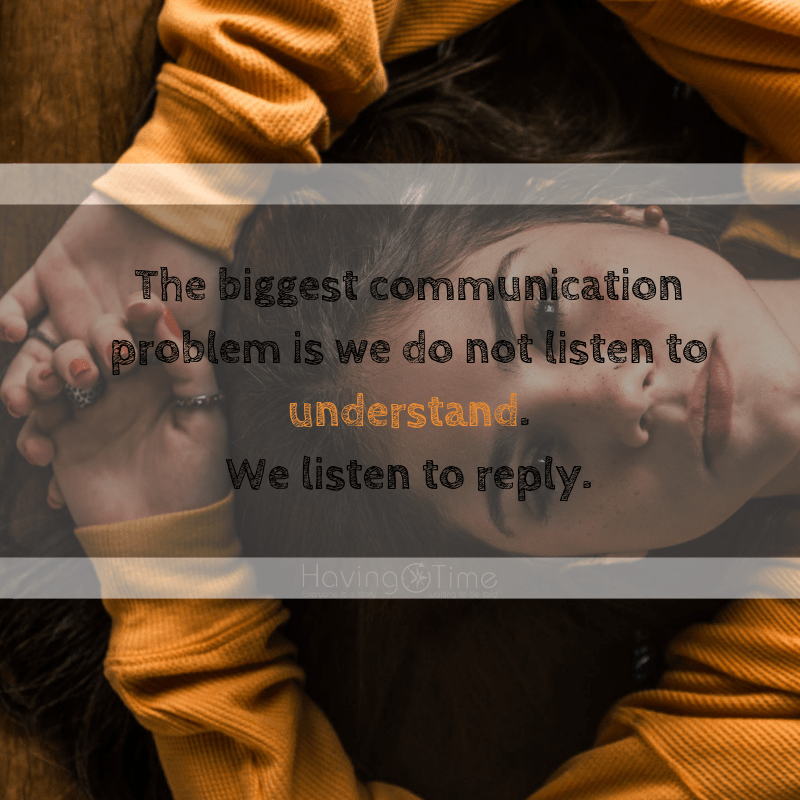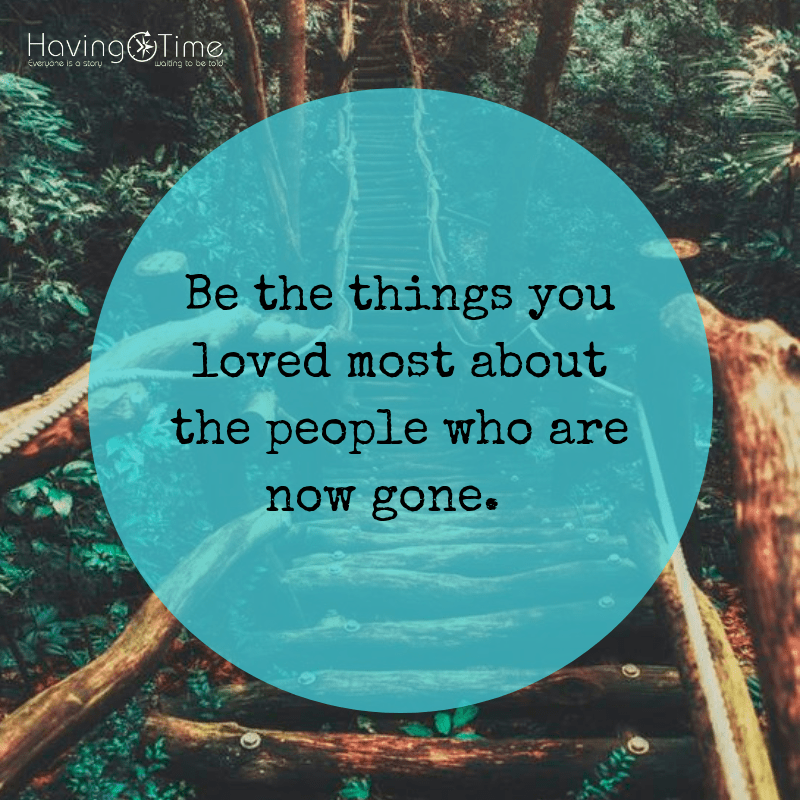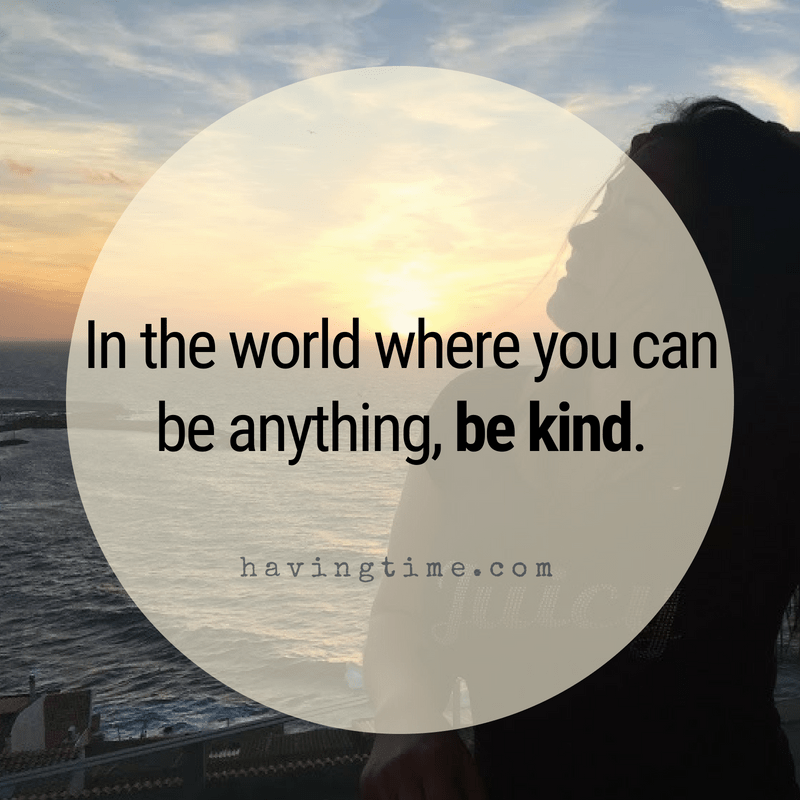How do you find strength after losing someone you love? It is true that grief becomes a scar on the part of our soul that survives the devastating loss. And in some ways, we will probably never completely get over the loss of those we loved the most. But there might be elements of the good news found in that loss. It’s somewhat like having a broken leg that never heals correctly—it still hurts when the weather gets colder, but you manage to learn to dance with a limp.

Two years have passed since I’ve lost someone I loved dearly; my mum passed away. It’s hard to believe how time flies… Most of the time, the memories are pushed back, buried underneath the reality of everyday life. Yes, life goes on and something like normality resumes.
Only that it’s new normality and there are the little pointers that tell you that life never goes back to the way it was “before”.
Don’t all our major experiences – whether happy or sad – make us into (slightly) different people? They wouldn’t be called life-changing otherwise.
Time is a healer, of course, but in my experience, healing doesn’t mean for it to go away altogether. My grief is here to stay. Grief has become my constant companion and takes on different forms. And this is not about wanting pity, but about acceptance.
A lot of people have heard of the five stages of grief (aka “Kübler-Ross model”).
They were developed by the Swiss psychiatrist Elisabeth Kübler-Ross:
Denial >> Anger >> Bargaining >> Depression >> Acceptance
Fewer people know that the model arose from her work with terminally ill patients (as opposed to people dealing with a bereavement). Only subsequently was it applied to all forms of grief. It’s also been widely misunderstood as it was never meant to be viewed as a linear process nor that all stages apply to all people.
“Kübler-Ross model” model can help us make sense of our own experiences but it shouldn’t be seen as validation nor is it a mold that our own experiences need to fit into.
Navigating my grief has been complex, confusing, unpredictable and exhausting. If I was able to go back in time, the below is what I would want to tell myself in the early stages of my grief. With the main message being: you are ok.
You are strong enough to handle whatever it is you are going through.
Your feelings are valid and don’t need to be approved by anyone. Just be and do YOU.
While I deeply believe that every experience is personal, maybe some of it will resonate and support somebody who is going through it at the moment.

–Vicki Harrison
Waking up to a new reality – again and again
It might sound bizarre but some days the realization that my mum passed away hits me afresh.
I dream about my mum. In my dreams, she is alive. When I wake up, the knowledge that she’s already dead hits me. Just for a nanosecond, it seems as if I forgot. Other times something happens and I instantly think that I want to tell my mum. Then realize that I can’t (not in a conventional way anyway).
Sometimes I have flashbacks of her last weeks and it feels that I am right back in that moment at her bedside.
The pain feels fresh and I recognize it as the same feelings I had back when it happened.
Even though time has passed, and I’ve been dealing with my grief, some days, it feels like the overwhelming black hole that I remember from back when. Like the worst kind of time travel, straight back to where it hurt the most.
Grief is timeless
I used to believe that grief had an expiration date. I was wrong.
I thought there would be a “grieving period” and then I’d be done with it and leave that period behind me.
People were telling me of the significance of the first year with all its “firsts”: birthdays (mine and hers), Christmas, day of death, etc. It seemed to imply that once I’d gone through it all once, it would lose its sting.
In my experience grief and sadness is not something “to get over with”. It comes and goes in waves. What we learn with time is how to ride the waves, how not to be scared of them, how to trust that we can swim.
My grief has certainly transformed. The time between the dark and painful episodes has become longer. I still get triggered regularly but it’s not usually the stabbing pain of the beginning and it passes more quickly. And there is a certain familiarity to my grief.

Honor your needs and respect boundaries
I wanted to talk.
It felt so huge that I couldn’t hold it all in but it spilled out of me.
At times, it felt like some sort of penance to go over and over the details of those last days by her side and relive the pain. Not everyone wanted (or was able) to listen. And I get it.
Having been on the “other”, the listening side before, I understand how it’s difficult to offer that space. We don’t like feeling helpless and very often there is nothing that will make the grieving person feel better.
Death makes a lot of people uncomfortable. Within a few weeks, only very few people asked how I was doing and the topic wasn’t really raised anymore.

People complain about others saying or doing the wrong thing. But is there one right thing? I get that some comments seem insensitive or inappropriate but I equally have sympathy. Whatever is said comes from a good place. People might say what they need to hear to reassure themselves. It’s generally not an attack on us. I have no hard feelings towards anyone.
Everyone did what they thought was best.
I learned to ask for help, communicate my needs and to accept help and support. I don’t take it for granted and it’s not something I am entitled to. We need to be able to talk about it as much as we need and want to. But we also need to accept other people’s boundaries and that they might not want to listen to us.
The whole new level of loneliness
The loneliness settles all around me and all within me despite being surrounded by humankind who have all experienced a loss themselves. But somehow my experience keeps me separate.
I can let in love but I am still bearing the weight by myself and imagine that everyone feels the same. It seems impossible to put into words what I feel and without being able to communicate it – how could anyone understand what it is I am going through?
It feels like a paradox to feel so alone regarding the one thing that is guaranteed to affect us all.
I learned to let go of the need to be understood. It’s important not to depend on external validation.
Even when nobody understands, your feelings are still valid.
As humans, we crave connection and it’s great to allow it into our life. But there is so much freedom in being independent of that. Of not needing it but graciously accepting it when it is offered.
Guilt, regret, and shame – what I didn’t want anyone to know
I feel guilt regarding a number of things.
The guilt and regret about everything I had done and said to my mum and all the things I hadn’t done and said to her when I still had time.
Then there’s guilt about having momentarily forgotten about her.
Other times, there’s guilt about carrying on with living that feels utterly pointless at times and getting carried away and caring about the most ridiculous things.
Sometimes I question whether I am even allowed/entitled to grief at all, given the relationship we had. I start comparing my grief – what about the mother who loses her child? The man who loses his partner? The baby who loses her parents? What is my grief compared to theirs? Which leads me to this…
Comparison creates pointless pressure and suffering
The minute we are conceived the comparison starts and it sticks with us. Whether through school reports or employee appraisals or marketing – we are constantly surrounded by images of what we and our lives should be like. It applies to all areas of our lives including grief.
I’m under no illusion that my need to do things not only “right” but also “better” than everyone else, is deeply ingrained in me and I continue to have to actively remove those thought traps.
There is no right or wrong way to do anything, including grieving. That realization is freeing but equally scary.
We look to others for confirmation and validation of what we are going through but there isn’t any. The only thing to do is to accept things the way they are for you.

Acceptance without judgment
We often want things to be different and sitting with our painful feelings is tough.
There is, of course, nothing we can do about death itself but acceptance encompasses all that comes with grief. All our feelings and thoughts which we might prefer to ignore and push away. Rest assured they’ll pop back up again.
Acceptance means we are not trying to change anything at the moment and most importantly we are not judging.
Prior to my own experience with grief, I was clueless. In my early 20s, I was dating somebody who had lost his dad as a teenager. His death still affected him and I remember thinking that surely after more than a decade, he should be “over it”.
I never said anything but I was judging him harshly. And even nowadays, I catch myself out about my beliefs about what things should be like.
As I am learning to accept myself, my feelings and thoughts, I am also learning to accept others and their journey. To offer sympathy and space for whatever they are going through, even when their experience is different from my own.
Be kind – always
We have certain expectations of how we want to be treated. We probably expect sympathy and understanding and comfort from others. But how about if we offered this to ourselves first?
I know I was less than kind to myself on occasion. I was impatient.
During the weeks following my mum’s death, I found it hard to concentrate at work. I made mistakes and beat myself up over them. I hadn’t expected to be affected by it in the way I was, especially as I had been able to mentally prepare myself for it (or so I thought). I found lots of reasons why I should be doing “better” than I was doing. When really, I should have shown myself kindness.

I have no doubt that my journey with grief will continue and things will continually transform along the way. I hereby vow to keep my heart and mind open to whatever awaits and to surrender fully to whatever life offers.
photo source | pexels
READ NEXT: How to Cope with Grief When You Lose Someone You Love




